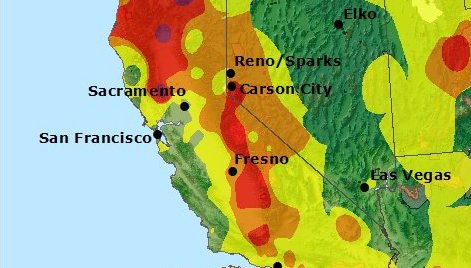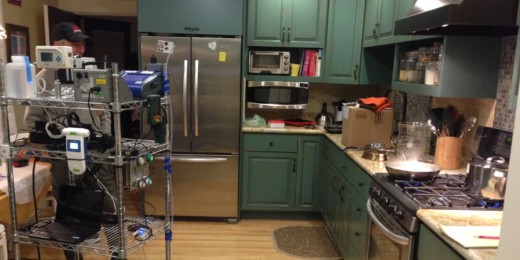I remember when you could ride BART for free on a "Spare the Air" day, when smog was expected to reach unhealthy levels based on standards set by the Environmental Protection Agency. Now, there are too many of these days -- 26 in the Bay Area last year -- to enjoy that perk.
This bad air is making us sick, according to Stanford allergy specialist and clinical associate professor Sharon Chinthrajah, MD. In a recent episode of the Sirius radio show "The Future of Everything," she spoke with Stanford professor and radio host Russ Altman, MD, PhD, about how we can combat the negative health impacts of air pollution.
"Poor air quality affects everybody: healthy people and people with chronic heart and lung conditions," said Chinthrajah. "And you know, in my lung clinic I see people coming in with exacerbations of their underlying lung diseases like asthma or COPD."
On Spare the Air days, Chinthrajah said even healthy people can suffer from eye, nose, throat and skin irritations caused by air pollution. And the health impacts can be far more serious for her patients. So she tells them to prepare for bad air quality days and to monitor the air quality index (AQI) in their area, she said.
The AQI measures the levels of ozone and other tiny pollutants in the air. The air is considered unhealthy when the AQI is above 100 for sensitive groups -- like people with chronic illnesses, older adults and children. It's unhealthy for everyone when the AQI is above 150.
On these unhealthy air days, Chinthrajah recommends taking precautions:
- Limit the time you spend outdoors.
- When outside, use a well-fitted air mask that filters out pollutants larger than 2.5 microns (which is about 20 times smaller than the thickness of an average human hair).
- When driving, recirculate the air in your car and keep your windows closed.
- Stay hydrated.
- Once inside, change your clothes and take a quick shower before you go to bed, removing any air particulates that collected on you during the day.
In the radio show, Chinthrajah explained that published studies by the World Health Organization and others demonstrate that people who live in developing countries like India and Asia -- where they suffer poor air quality many days of the year -- have a shortened life span.
"There are premature deaths. There's exacerbation of underlying lung issues and cardiovascular issues. There's more deaths from heart attacks and strokes in countries where there is poor air quality," she said.
She admitted that it is difficult to definitively say these health problems are due to poor air quality -- given other problems in lower income countries like limited access to clean water, food and health care -- but she thinks poor air quality is a major contributor.
Chinthrajah said she believes we need to address the problem of air pollution at a societal level. And that means we need to target cars that burn fossil fuel, which account for much of the air pollution in California, she said. Instead, we need to move towards using public transportation and electric vehicles, as well as generating electricity from clean energy sources like solar, wind and water.
She noted that California is now offering a $9,5000 subsidy to qualifying low-income families to purchase low-emission vehicles like all-electric cars or plug-in hybrids, on top of the standard federal and state rebates.
"So it seems like an overwhelming, daunting task, right? But I think we each have to take ownership of what we can do to reduce our carbon footprint. And then lobby within our local organizations to create practices that are sustainable," she said.
Chinthrajah hopes that addressing air pollution and energy consumption at a societal level will lead to less asthma and other health problems, she said.
Image by U.S. Environmental Protection Agency






